With six novels (both trade-published and self-published) to her name, and an extensive following of loyal readers, Linda Gillard explains why she regards most social media activity as a waste of good writing time. Linda makes an exception for Facebook with which she happily engages on her author page.
The best way to promote your books is to keep writing and publishing new ones. New books stimulate interest in older books and keep your (hopefully insatiable) fans happy.
So the only social media I use is Facebook, via my author page. (I don't even use my personal page). I don't spend time on anything else. I have a website but I don’t Tweet and I don't have a personal blog. I guest blog when asked (which is quite often.) I’m happy to do that because it allows me to reach a wider market, and I always tailor my piece for the blog’s readership. My “cuckoo in the nest” approach means I can get to a lot of people who have never even heard of me. With a personal blog, I’d be largely preaching to the converted.
I restrict my interaction with social media because I don't believe anything else sells (in significant quantities) the kind of books I write: non-genre, literary-ish fiction, aimed mainly at women.
Why I Use Only Facebook
Maintaining my Facebook author page (851 followers) is the minimum social networking I can live with, without fretting that I ought to follow the herd and do more – and there’s a lot of pressure now on indies to blog, tweet, have mailing lists, do Pinterest, Goodreads groups etc. (I do wonder whether the popularity of all these displacement activities stems from the fact that they’re a lot easier than actually writing books.)
I’ve found that Facebook does sell books, though not in large quantities. From a commercial point of view, the time I spend on Facebook would probably be better spent writing, but a lot of my fans have become friends, so my FB activity is now recreational as well as promotional.
In addition to reminding followers that there are books they haven’t bought yet Facebook sells my books to people who don’t even follow my page. Here’s how. My followers share news about my books, alerting their friends: “X, you’d love this & it's only 99p”, ie they are target-marketing for me. Then X posts to say, “Looks good. I just clicked”. That happens a lot. X & co. have no relationship with me. They often remark that they’ve never heard of me, but they click anyway or add me to their to-read list. They buy my books because of a personal recommendation from someone they trust – and that’s the main thing that sells books – readers talking about them. (Not authors talking about them.)
My Facebook Objectives
My engagement on Facebook has two objectives:
- To reach more people who are actual or potential readers of my books
- To make it as easy as possible for my readers to tell other people to read them (because their reach is much bigger than mine)
The relationship I have with my FB followers is just as much about their relationship with the books as with me. I think getting readers to engage with your books is much more important than getting them to engage with your website. (No one ever mentions my website to me apart from journalists.) I don’t believe readers really want extra content on websites or blogs, they want more books.
I know many authors will disagree and extol the virtues of Twitter & that ultimate time-guzzler, Pinterest, but I’d just like to reassure authors who struggle to manage demands on their time that it's possible to have a simpler, pared-down approach to social media and still sell a lot of books.
Or to put it another way: enthusiastic engagement with social media will not sell (m)any more books, so you might as well write.
Editor's Note: This guest post came about because I asked Linda's permission to reproduce some comments she'd left on ALLi's private Facebook forum, expressing her strong views in a discussion about whether or not social media sells books. By chance, earlier that day I'd posted a link in a personal Facebook group that I run, recommending to my own friends Linda's first novel, Emotional Geology, currently on promotion on Amazon for 99c/p. A timely piece of evidence for Linda's case!

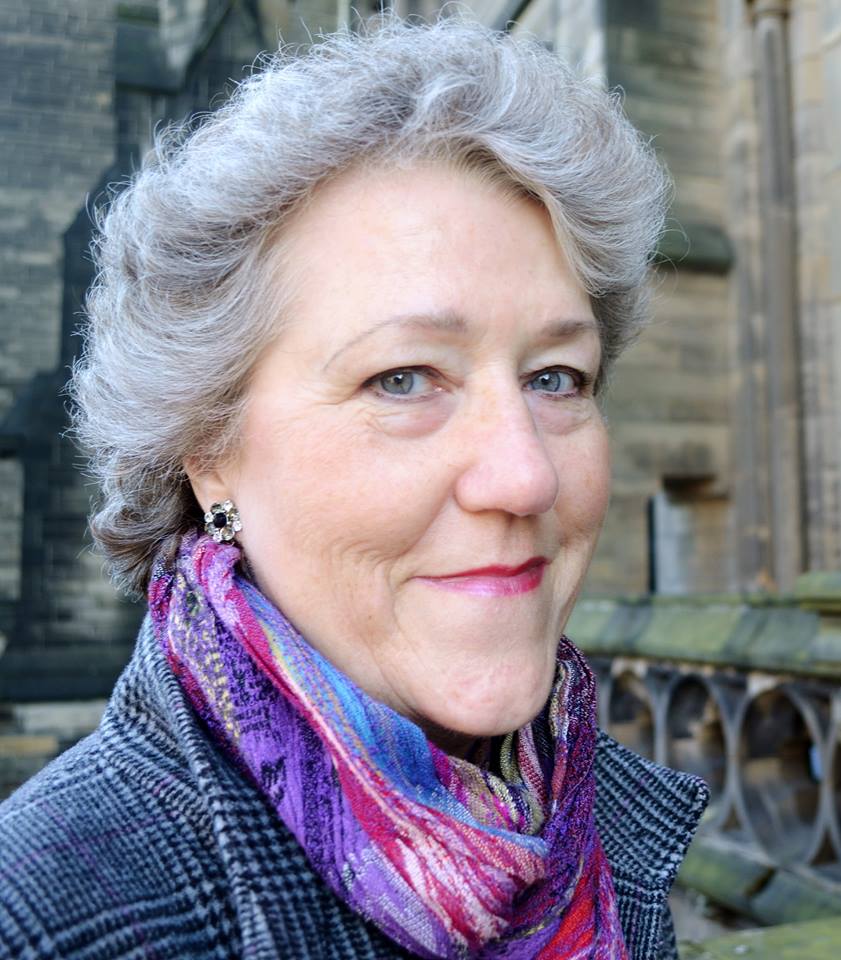
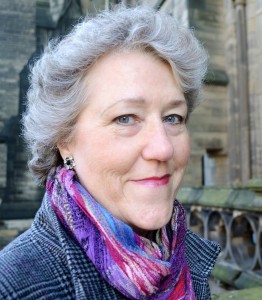
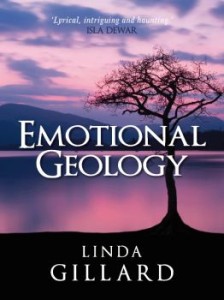
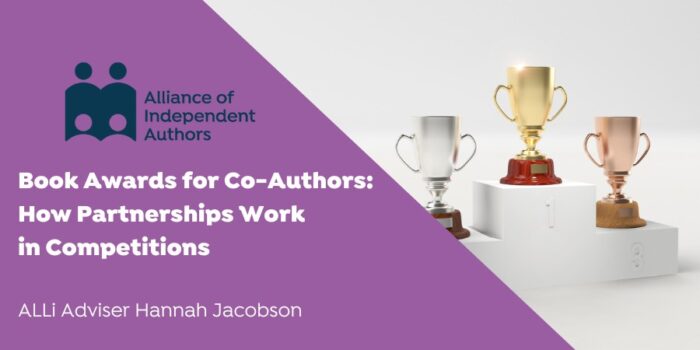
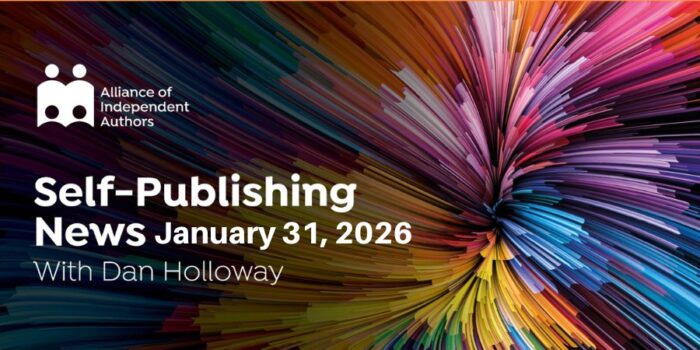

This can be in the form of vegetable or fruit juices, which are less in carbohydrates.
Folks who get these shots primarily undergo from persistent tiredness syndrome or a deficiency.
We’ve heard over and over that eating healthy food
and exercising several days a week is the best long-term plan for physical fitness.
s recent book the Lost Symbol, you may recollect that the meaning of Noetic Sciences
and just what it is. Well, that’s how hcg diet
plan ensures you lose weight fast and even safely.
So the next time you use Social Media remember it’s potential power and always be on the lookout for
ways you can use it to your advantage. If a person is
interested in what they see on your Facebook page, it’s crucial that
they have your contact information to learn more.
After so much spent or so many visits, offer a free product or percent off.
Because the specific needs of a child may involve academic delays, behavioral issues,
social deficits or a combination of the three,
the overall effect of a two-to-three month summer break may vary significantly from
one student to another. Clearly, the prospect of a typical morning
jog or walk is not the most exciting idea for most
people. Today there are many kids living in the world with Down Syndrome, otherwise known as autism.
These are all valid concerns and should be studied and researched carefully before settling on the right choice.
As they work, discuss with students the importance of portfolios and what they are used for (storage, keeping work clean, seeing growth) and get
to know them better by talking about their portfolio covers.
This is a great summer art camp lesson to practice texture or to
draw a still life or leaves. For the most part, if you are certain that you want to bring along several propane cylinders, you
may need to find an alternative way to carry them.
These boot camps not only offer sessions at certain periods through out
the year and have limited space. You can even rent your own beach cabana for added privacy.
Here’s several tips to lessen the tension you could be feeling in your body.
Hi LInda: Great post. I totally agree. I have all the social media stuff going but rarely post anymore to twitter, pin anything on pinterest, participate with Goodreads, post on my blog, etc. I no longer pay for advertisements that produce little results. I have also have an author facebook page that I used to buy advertisement but there’s little return. I have 10 romances out so I just keep writing. The social thing for me feels like a time-suck, even Facebook so there’s not much going on there. 🙂 Grace
One of the most useful posts on social media I’ve read – thank you.
I enjoyed the article and your perspective, Linda. Whether social media marketing is effective can be debated, but I do think it’s really important for writers to engage in social media with other writers, because ours is such a solitary profession. I spend about 90 minutes per week on social media, simply because it helps me keep my sanity.
As a reader, on the other hand, I think you’re exactly right about engaging with fans. I don’t like it when I read a book that I really like, but the author has no web presence, social media included. However, I often want to see more than just a Facebook page. I want to see interviews, videos, guest blog posts, podcasts, etc–not because the writer should be doing these things, but because I’m interested in him or her as a person. Because there are so many authors out there making noise, it’s very, very hard to get a reader to this point where you become a real person to them instead of just another pen name.
Since most writers are introverts, those who don’t provide this personal connection are losing out because an almost-engaged reader may jump ship and find another author who will provide that connection.
For this reason, I do think that fiction authors SHOULD consider social media as a way to interact with and provide value to those types of fans, because they are often our most vocal supporters. It doesn’t have to be a laborious task, either.
That’s very interesting Michael, especially your persepective as a reader. Can I just ask, if you had to choose, which would you rather have? Blogs, podcasts, interviews, etc with your favourite author or a new book?
You see, I’ve been making the assumption that readers always want a new book from their favourite author and that all the other content you describe is what authors put out there to keep things ticking over until there’s a new book on sale. But you make a convincing case for readers wanting (& expecting) much more of an internet presence from an author.
Maybe it’s an age issue? I’m not young and a lot of my favourite authors are dead (and one’s 96!) so I don’t expect blogs & interviews, I just work my way though their back catalogue. (Up to #14 of Patrick O’Brian’s Aubrey/Maturin 20-book series.) For me it’s about the books.
But I’d love to be able to give my fans more. When I gave a talk recently at an Edinburgh publishing conference, I talked about what my goals were now as an indie author. One was to crack the US market. The other was to earn enough to pay an assistant who’d deal with social media and give fans all the extras, leaving me free to write the books.
Hi Linda,
Thanks for your response.To answer your question, I would prefer both, though naturally, I’d want to read more books–but only if the quality keeps up with the quantity.
It could be an age issue, since so many of the younger generations want everything now, but the world culture has been going that way for quite some time. And for those authors that have passed away, there is probably so much about them and their lives that people today would like to know. For example, I’m sure that the Hamish Macbeth books will outlive M.C. Beaton, but when future historians look back on today, they’ll want to know about much more than her books, right?
Best of luck with your goals–I live here in the US, and it’s a hard market for ME to crack!
I am beginning to research how we use the definition ‘introvert’ since so many writers claim that’s what they are…Judging by the way they use FB etc , I am intrigued… Actually I think the popular use of the word has slipped from what it was meant to mean by Jung… to be a writer who uses social media, or even who has lots of ideas it’s kind of necessary to be an ambivert rather than an introvert, i feel … to be interested in communicating with people, to have empathy, to be happy to spend time interacting… But I may be wrong, being a person who doesn’t enjoy solitude one bit!
Others’ thoughts?
I think there’s a big difference between time spent on social media and effective book marketing on social media. While I always appreciate Linda’s viewpoint, I personally feel the 90 minutes per day I spend on social media in no way eats in to my writing time and a large part of my success and an indie is due to my streamlined efforts on Twitter and Facebook. With Debbie’s permission, I’m posting the link to my post on the same day that was in no way a response to Linda, it was just another post spawned from this discussion in the Alli private Facebook group. It offers some alternatives to those who want use social media in a time-efficient, targeted way.
Social Media Is Not Always About You
http://www.themoonlightersguide.com/2013/12/social-media-is-not-all-about-you/
Connie, That’s interesting. I shall read your piece. Having joined a(nother) writers’ group and found they often spend time just chatting or joking around, I feel rather disillusioned with FB as a way to develop in any direction as a writer, and find myself withdrawing from discussions which spiral downwards from the serious minded beginning to the useless in-group funnies… whereas how to use social media in a targeted way, which is not simply for timewasting and procrastination, would be useful.
Book discussion forums like Goodreads, Read it Swap it, Book Club Forum, Kindle Users Forum have all led to sales for me. But you have to engage as a member, not just as an author. Relentless self-promo will do more harm than good.
BookCrossing.com was also invaluable for me in the early days – but I was prepared to give away a lot of books to BC who put them into circulation and reviewed them. They also have a very chatty forum which I engaged with.
This was years ago (2005 onwards) and I rarely do these things now, but for someone starting out I would say engage with book forums because it’s worth doing, it makes friends & can lead to sales.
Engagement with readers is always worth it. Marketing?… Hmm, I’m not so sure.
Linda, ‘Relentless self-promo will do more harm than good’: yep, it can be very offensive – I so recall someone who joined the FB writers’ group I mentioned, and self-promoted like crazy, intensively, for some months. We were treated to all the meals she ate and friends she spent time with across the USA… it seems to’ve sold her book to AN audience, but she has now disappeared, is remembered no more by the group, and, personally, her book had joined my ‘not to buy’ list through the self-promo!
Clare, in case you haven’t seen it before… Here’s is a link to a post I wrote for ALLi about what I call “self-promotion by stealth”. https://selfpublishingadvice.org/guest-post-independent-authors-and-visibility-by-linda-gillard/
We all need to make our books visible in a marketplace that’s becoming more & more crowded, but we have to find a way to promote our books that engages, not annoys our potential readers.
so true, Linda…!
thanks for the link.:-)
Thank you so much!
Like Dianne said, it feels like getting permission to re-focus on writing and let marketing (aka Facebooking and blogging) take a back seat again. I might still create a mailing list with a warning that newsletters will be few and far between them – just so people know when I actually do put up another blog post or even get another book out. But that might be all.
Off to write some more! 🙂
I was all set to create myself a mailing list until I noticed that I no longer sign up for them. I’m also deleting without reading the ones that do make it into my inbox. Now I’m even unsubscribing. (Traitor!) And these are mailing lists I signed up for. But I’m bored with newsletters – there are too many now – & I don’t have time to read them. I imagine I’m not alone in feeling like this.
So I remain unconvinced about the efficacy of mailing lists, though I realise many writers swear by them. Yes, the info goes straight into someone’s inbox & it’s target marketing – but only if people actually read it.
I can find out who’s publishing a new book, who’s sold film rights, who’s doing a freebie book for Christmas via FB. I know the standard response to that is, come the apocalypse, FB might go to the wall, but tbh I’m not losing any sleep over that one.
I tried many social media outlets when I first started marketing my books, but so many of the forums stamp on you as soon as you mention you’re an author i.e. Goodreads and Kindle. Boards, that I felt gagged. I had no intention of spamming, but I couldn’t respond to readers as an author, and felt as if half of me had to be left behind. Other places like Linked In seemed to be a ‘look at me’ shouting match which I found incredibly pointless. When I decided to focus only on Facebook (which, like Linda, I enjoy) with Twitter as a way of extending my reach, I didn’t lose any sales, which leads me to believe that all those other activities really were a waste of time. I really enjoy blogging, though I can’t say whether it sells books or not. The only thing I can say that for sure sold books was Bookbub.
Though I’ve heard it’s the thing to do, I’m not writing more books at the moment. The thought of the effort involved in marketing them puts me off the whole idea, instead I’m concentrating on helping other authors to self-publish well using the skills of experienced self-publishers and editors associated with the Awesome Indies. I find helping others easier and it suits me better than trying to sell my own work. http://awesomeind ies.net/authors-services/partnership-publishing-services/
Sorry to hear you’re not writing these days, Tahlia. As you know I really enjoyed YOU CAN’T SHATTER ME. But I’m not surprised the marketing circus has put you off. It’s daunting & distracting. It’s not why any of us became writers.
Good luck with your editorial venture and being a creative midwife. I trust the Awesome Indies site will go from strength to strength. It’s done a great job helping readers find quality indie books.
I found this so encouraging, and such a breath of fresh air… I seem to’ve come across a lot of writers who, though they claim to love writing, keep up a constant chatter on Facebook. Who even talk about all the different ways they “procrastinate”. It’s good to read one who avoids social media in favour of actually writing (!!) – or is honest enough to say so…struggling through a big copy-edit and re-writes on a novel, I find I don’t have time to procrastinate, or even really the inclination to do so – fitting in coming here (ALLi blog) to see what’s going on is something I’ve begun to do recently in order to get into some kind of swim among other writers, and trying to blog a bit more often is quite enough extra! Have no “author page’ maybe that’s worth a thought – PR not easy, and we’re constantly told we have to do it!
Ah Linda, this post is like a breath of fresh air to me – it’s almost like receiving permission to officially abandon my poor attempts at maintaining a blog, and I feel a sense of relief as I read your words. I have been feeling, for quite some time now, that the blogging/Twitter/Pinterest/and yes, even sometimes Facebook avenues, have become saturated, and along the way, have stolen precious writing time from us without giving enough satisfactory returns WRT our writing careers.
If you need more persuasion, Dianne I’ll also stick my neck out and claim that the quality of my guest blogging is high because I don’t have to do it very often. It’s fresh because it’s usually a blog that’s new to me and I have to adjust my style & tweak my content to appeal to the blogger’s audience. I think it’s a useful marketing exercise – learning how to present yourself to a new audience in a new way. If I had a regular blog I think I’d do it in my PJs with no make-up, if you see what I mean. 😉
I just about ruptured a vertebra nodding just now. Thanks for these wise words, Linda. And when IS your next book out?
CAULDSTANE would have been out for Christmas, Joni, but I’ve been spending too much time on Facebook. 😉 So it will be January, I hope.
(You take care of those vertebrae now.)
I’d like to think that when I do have several books ‘out there’ and have established a readership, then it would be lovely to focus my energies on just one social media ‘outlet’.
At the moment it’s good to test the water with different things and I enjoy writing my blog (familyhistorysecrets.blogspot) because it ties in with the inspiration behind my novels and in that sense it might also be of interest to my readers.
I am aware even now, though, of how it impacts on my writing time (or on my life, come to that!) and already I’m working out how to ration it!
Wendy, I think you have the balance right. You’re aware of the potential problems and you say, “I enjoy writing my blog because it ties in with the inspiration behind my novels and in that sense it might also be of interest to my readers.”
If authors *enjoy* Tweeting, Pinning & blogging then it’s really not a problem. I’m not knocking these activities, I’m just trying to see them for what they are: distractions from an intense & obsessive creative proccess. But what I’m seeing & hearing is a lot of time-poor people stressing about not doing enough and assuming that if they only dissipated their energies more, they’d sell more books.
I can see the absolute logic of this approach, and for me it is both a temptation ( to abandon all else to write…whew what a relief) but it seems truer of fiction than non-fiction. One probably has few non-fiction books in mind, and even if one had different ones their readerships would be different. So low spill over from one to another!
Guest blogging rather than blogging does seem the intelligent marshaling of energy to reach more people, but within the ethics of the bloggosphere reciprocity is key. If one has very few followers on one’s own website, it is difficult to ask for hosting elsewhere. Although I have been the recipient of two very generous opportunities , with Roz Morris’s Undercover Soundtrack and the Story Reading Ape’s ‘New to me Author Introduction’ All I can do in return is mention them whenever and wherever I can.
Is Linda’s energy conservation mainly possible because of an abundance of readers, facebook friends, all a-clamour for her next book and therefore silently endorsing her freedom to put writing first? How I envy that!
Philippa said: “Is Linda’s energy conservation mainly possible because of an abundance of readers, facebook friends, all a-clamour for her next book and therefore silently endorsing her freedom to put writing first?”
An interesting question, Philippa, but there was a time – 2010 I think – when I dreamed of having 50 FB followers. I didn’t start my literary life with a following. (My literary life started in 2005 when my first novel was published and a few people liked it and those few told a few more.)
My loyal followers might allow me to conserve energy *now*, but I think I acquired a lot more loyal followers because I stuck stubbornly & singe-mindedly to writing books when all around me were tweeting & pinning. (And I wrote 2 of those books when I had been dumped by my publisher and the indie ebook revolution had not yet happened. Under those circumstances I was preparing for a miracle.)
“I do wonder whether the popularity of all these displacement activities stems from the fact that they’re a lot easier than actually writing books.)
Linda, I wonder about that , too. Like others, flirting with your approach is tempting.
A question, besides writing more books, are there specific things you do/did to grow your FB followers?
I try never to be boring. I don’t post photos of what I’ve cooked. There are no puppies or kittens. Everything on my FB page is meant to be relevant to writing & reading, or it will refer specifically to the content my books. So I’ll share posts about Scotland (where several of my books are set) or I’ll share posts about mental health issues (because several of my books deal with depression, PTSD, bipolar.)
I share news about my books & links to exceptional reviews, but I try to keep a balance between interesting stuff and book promo.
I often ask Qs to engage followers in a discussion. A recent one was “Matte or shiny covers?” When a discussion gets going I engage and try to respond to everyone who leaves a comment.
I recommend books & notify followers if something is free/on offer that I think I can endorse as worth their attention. (So I’m promoting other writers’ books, not just my own.)
I don’t do much personal stuff (I did post pics of my children’s weddings) but when I was diagnosed with cancer in 2012 I went public on FB because it affected my book schedule and I wanted followers to know what was happening and why.
My posts about treatment for cancer have been the all-time popular posts & they brought a lot of new people to my page. But I don’t recommend cancer as a marketing strategy. It really eats into your writing time. 😉
As someone who wrestles daily with the temptation to do all the things you don’t do, this is music to my ears. Lots of mainstream bestsellers take this approach too – one of my personal favourites is M C Beaton, whose Facebook page is disarmingly charming and well-balanced.
Thanks for tweeting, Roz. 😉
It’s a galling fact of life that it takes me a year to write a book and it takes my fans a day, maybe 2 to read it. No sooner have I published than there are posts on FB saying, “Loved it! When’s the next book out?” It seems obvious to me that, financially speaking, *my* time should be geared up almost exclusively to producing books.
It is of course more of a moot point for authors trying to establish themselves. It’s a tricky balance to strike. But one of the reasons I am established is I brought out 4 indie ebooks in the year my publisher brought out another. That made an impact. A new book will make a bigger impact than anything else. And if you’re a new author you want to give the readers who discover you the heady experience of finding you have a whole catalogue of books for them to devour.
And devour they do. I have Amazon reviews referring to a recent click-fest because readers read one book and then bought several more in an access of enthusiasm.
That’s what we all want. For it to happen, you need a heap of books out there.
Very interesting and persuasive, Linda – especially your points about readers wanting more books and not being bothered about blog posts. I’m off to share – on, er Twitter….